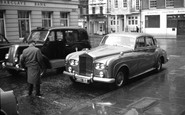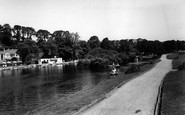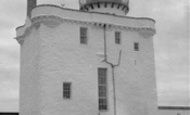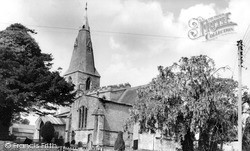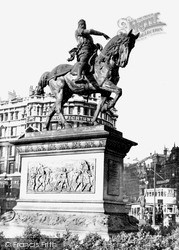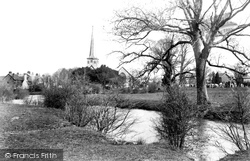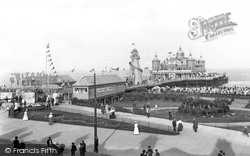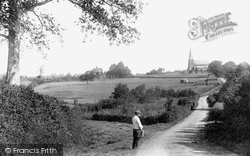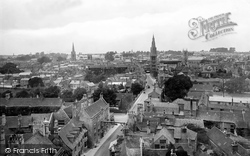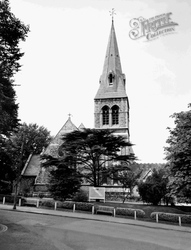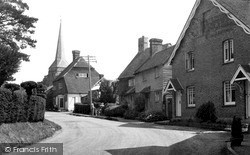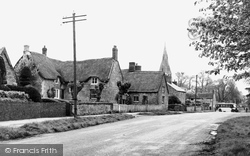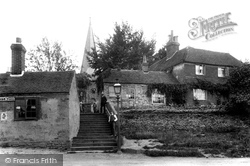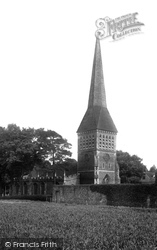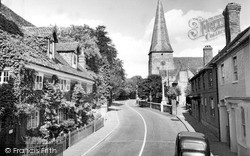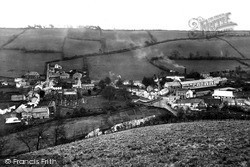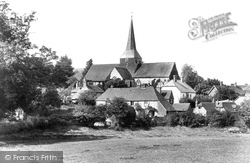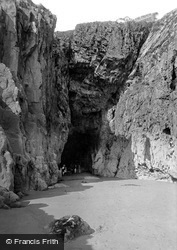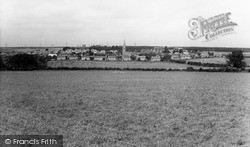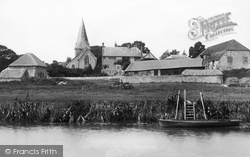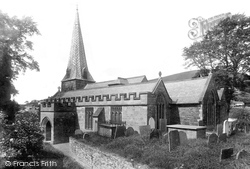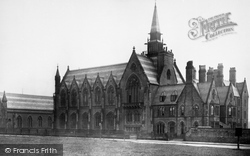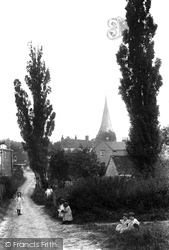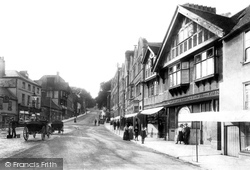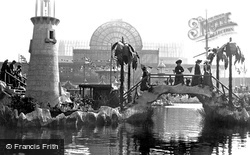Places
Sorry, no places were found that related to your search.
Photos
3 photos found. Showing results 21 to 3.
Maps
Sorry, no maps were found that related to your search.
Books
Sorry, no books were found that related to your search.
Memories
56 memories found. Showing results 11 to 20.
Dysart Dovecote Crescent
Born in Dovecote Crescent in 1944, I remember walking to East Weymss by the Man o the Rock, the sea could be quite wild just past the 'Bing'. I used to help Shanny collect seacoal on his horse and cart, I think he was the ...Read more
A memory of Dysart in 1949 by
The Hunt Family Cowbit
I have a silver brooch presented to "Bro" AQ. Hunt, Cowbit Branch by the National Union of Agricultural Workers, probably 1930s or earlier. I acquired it from a market stall in Bury St Edmunds many years ago and I would love Mr ...Read more
A memory of Cowbit by
Mayfair Furrier
In 1961, I became an apprentice furrier to Brainin Bothers of New Bond Street. Brainin's owned a large store (I was told it was as big as Harrods) in Russia.They escaped the Communists and moved to Vienna, only to escape Hitler in ...Read more
A memory of London by
Happy Days In Newquay
My parents were friends of the Lukes and as my father was in the war, and Birmingham was getting more bombing, it was decided to send me down to auntie Dorothy. I enjoyed down there, although I was only 4yrs old I still ...Read more
A memory of Newquay in 1943 by
Henry And Sarah Jane Christelow Eddy
Henry and Sarah Jane were my husband's grandparents. I'm not sure where they were born but they were married at the Chester-le-Street Registry Office and were living at Pelton Fell when my father-in-law, ...Read more
A memory of Pelton Fell by
Great Uncle John Percy Norfolk Was Born In Ilkley In 1880
Great Uncle Percy was born John Percy Norfolk near Ilkley, in 1880 and was the brother of my grandad William Arthur Norfolk. He fought with the East Yorkshire Regiment during the First World ...Read more
A memory of Ilkley in 1880 by
Childhood Days In The Broch
I left Fraserburgh as an eight year old. but I remember playing round the lighthouse. On the rocks below there was a large pool where we built rafts from herring boxes nailed together and filled with cork floats from the ...Read more
A memory of Fraserburgh by
St Mary's On Parrots Rd. 1951
Hello...my name is Joe Farrugia and, along with my younger brother Godfrey, lived at St Mary's from1951 to 1957. I recall very well the times with Fr Baker (think we nicknamed him Fr Backi) with his small black car which I ...Read more
A memory of Gravesend by
Tintwistle Days!
My recollections are from the mid 1950s to early 1960s. These were happy days wandering the Longdendale Valley and the Torside Reservoir, usually with guitar slung over my shoulder in the company of Olwen Brown, a local 'Tinsel' ...Read more
A memory of Tintwistle in 1956 by
Acton My Dad
My dad was known as Jack Bryant, although his real name was John. He lived in various parts of Acton with his oldest sister, Pat (who went to Lincolnshire to 'Land a Hand on the Land' during the war), Uncle Boysie (Albert), Uncle Terry, ...Read more
A memory of Acton in 1930 by
Captions
81 captions found. Showing results 25 to 48.
This church has a connection with the Alps! It contains two special glass windows in memory of the Rev Charles Hudson, who lost his life in 1865 during the descent of the Matterhorn.
This statue by Brock is of Edward of Woodstock, better known as the Black Prince on account of his black armour.
This statue by Brock is of Edward of Woodstock, better known as the Black Prince on account of his black armour.
It is wintertime with bare trees and lots of water in the River Mole. The church has a modernised tower and a shingled broach spire.
This photograph shows the Britannia pier just four years later with a new helter skelter. Hoardings advertise summer seasons by the Brothers Howard and Miss Ruth Vincent.
The church of St Peter ad Vincula has a shingled broach spire. We can see a fine smock windmill in full working order in the left distance.
The layout of Stamford, climbing gently in terraces up from the Welland, is well shown in this photograph from St Martin's church tower. The churches of All Saints, St John, and St Mary stand out.
Standing high above the town centre and attractively sited on the crown of the hill, the church with its elegant broach spire was designed by Sir Arthur Blomfield in c1861, but not completed until 1881
This area was connected with the Sussex iron industry in the 17th century.
Here is a village at ease with itself, in the heart of stone country. On the extreme right is a single-decker bus which would now be an asset to any transport collection.
The heavy broach spire of Billingshurst Church rises above the town. The church was enlarged and restored in 1866, though some evidence of its Early English character survives intact.
The patron and rector from 1845 to 1892 was the Rev John Foster, who restored the church on High Church Anglo-Catholic principles.
The church of St John the Baptist is mainly 13th-century and has a wood-shingled broach spire.The village has many historic houses.
The church of St James with its broach spire is an interesting one. The hunting parson John (Jack) Russell was once incumbent here; he bred the dog that now carries his name.
We are in the main part of the Hartings, nestling in the northern slopes of the Downs, on the pilgrims' route to Chichester.
The 'Droch' or Cave of Beauty is regarded as the finest at Lydstep Cavern Beach.
This view from the fields south-east of Stanion shows the small Northamptonshire village centred on the medieval church, with its fine 15th-century tower with broach spire.
We are on the navigable and tidal River Arun. The church of St John the Evangelist has a shingled broach spire; flint and stone are used for walling and buildings.
Here is another broach spire, 102ft tall, after the style of St Peter's, Barnstaple. The church, St James, is packed with interest.
The earliest mention of the provision of education in Leeds dates from 1552 when William Sheafield, chantry priest of St Catherine, left property to support the upkeep of a schoolmaster.
Its Anglo-Saxon name means 'wooded hill in the territory of Billa's people'.
St Mary's Church 1907 Moving north-east to the western end of the Sussex Weald, we reach the town of Horsham, which expanded greatly after the railway arrived in 1848.
Thrusting out into the sea, they encapsulated the Victorian passion for innovative feats of engineering. Britannia Pier was constructed in the mid 19th century.
After the Great Exhibition of 1851, the Crystal Palace was moved to Sydenham in south-east London, where it was filled with lavish displays.



